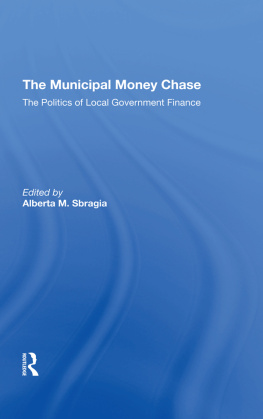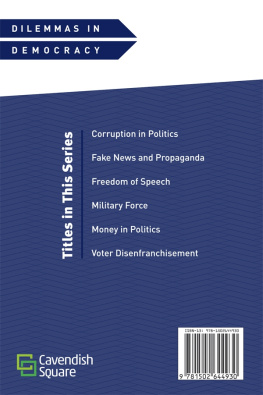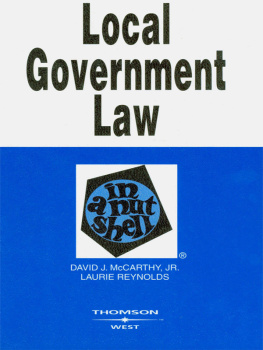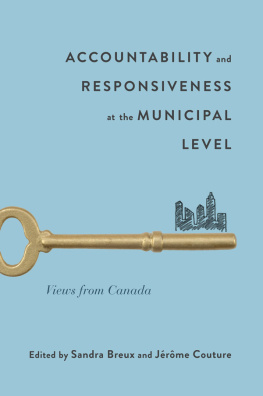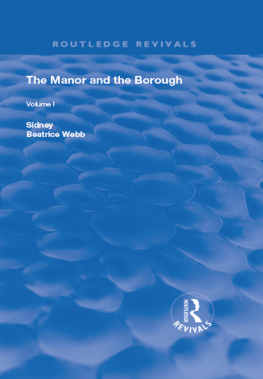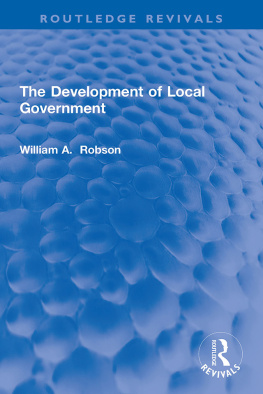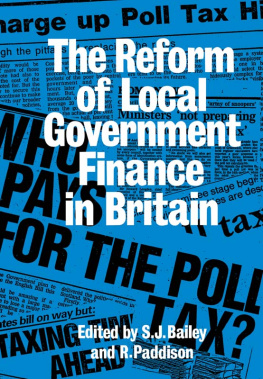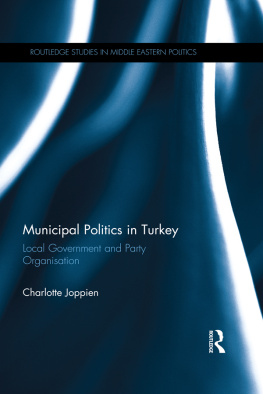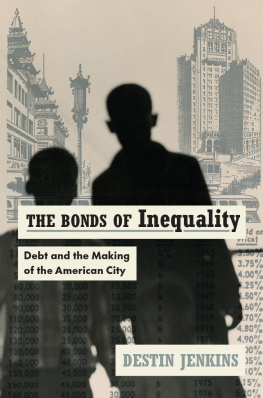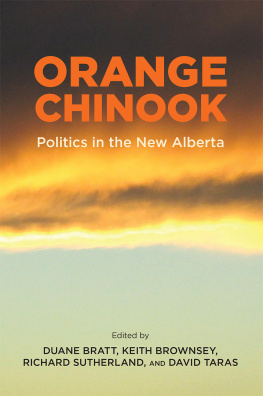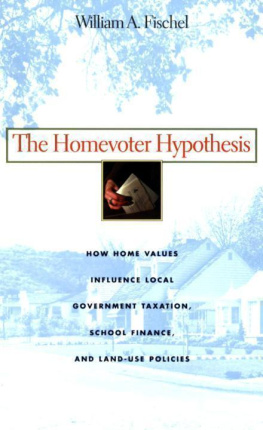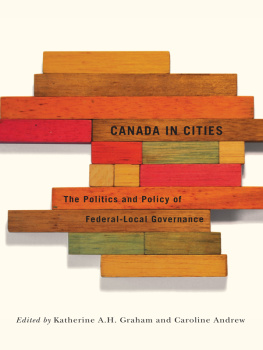The Municipal Money Chase: The Politics of Local Government Finance
Also of Interest
Of, By, and For the People: State and Local Governments and Politics, Morris J. Levitt and Eleanor G. Feldbaum
Managing Local Government for Improved Performance: A Practical Approach, Brian W. Rapp and Frank M. Patitucci
Reorganizing State Government: The Executive Branch, James L. Garnett
The President, the Budget, and Congress: Impoundment and the 1974 BudgetAct, James P. Pfiffner
The National Planning Idea in U.S. Public Policy: Five Alternative Approaches, David E. Wilson
Social Security: A Reciprocity System Under Pressure, Edward Wynne
Politics in the Rural States: People, Parties, and Processes, Frank M. Bryan
Rural Society in the U.S.: Issues for the 1980s, edited by Don A. Dillman and Daryl J. Hobbs
Available in hardcover and paperback.
About the Book and Editor
The Municipal Money Chase: The Politics of Local Government Finance
edited by Alberta M. Sbragia
Gone are the days when the raising and apportioning of municipal monies was a relatively simple task, when ample income could be expected to meet projected needs and also fund a few additional projects. Now local officials are faced with shrinking budgets, tax revolts, decreasing federal support, increasing state and federal regulationsin short, genuine crunches that leave them pondering how sparse resources can ever be stretched to meet the multitude of actual needs.
This book stresses the political dimensions of local finance, emphasizing the local, intergovernmental, and private-sector constraints faced by municipal officials in their attempt to provide services while balancing the budget. Integrating the implications of the Reagan administrations new approach to federal spending into their analyses, the authors examine the impact of state regulations on local taxation and debt policies, the relationship between local governments and the municipal bond market, the political economy of New York Citys fiscal crisis, and the impact of various tax limitation measures, including Californias Proposition 13. They also study the effect of community development grants on local decisionmaking structures and the impact of urban congressional representatives on the allocation of federal grants. Their presentation is aimed especially at graduate and upper-level undergraduate students of urban politics, local finance, state and local government, and intergovernmental relations.
Alberta M. Sbragia is an associate professor of political science at the University of Pittsburgh. Her publications include Borrowing to Build: Private Money and Public Welfare (1979) and The Politics of Local Borrowing: A Comparative Analysis (1979).
First published 1983 by Westview Press
Published 2019 by Routledge
52 Vanderbilt Avenue, New York, NY 10017
2 Park Square, Milton Park, Abingdon, Oxon OX14 4RN
Routledge is an imprint of the Taylor & Francis Group, an informa business
Copyright 1983 Taylor & Francis
All rights reserved. No part of this book may be reprinted or reproduced or utilised in any form or by any electronic, mechanical, or other means, now known or hereafter invented, including photocopying and recording, or in any information storage or retrieval system, without permission in writing from the publishers.
Notice:
Product or corporate names may be trademarks or registered trademarks, and are used only for identification and explanation without intent to infringe.
Library of Congress Cataloging in Publication Data
Main entry under title:
The Municipal money chase.
Includes index.
1. Municipal financeUnited StatesAddresses, essays, lectures.2. Intergovernmental
fiscal relationsUnited StatesAddresses, essays, lectures.I. Sbragia, Alberta M.
HJ9145.M89 1983 352.10973 82-17367
ISBN 13: 978-0-367-29417-5 (hbk)
Contents
, Alberta M. Sbragia
, Alberta M. Sbragia
, James P. Pfiffner
, Alberta M. Sbragia
, Patricia Giles Leeds
, Susan A. MacManus
, Raymond E. Owen
Roger Friedland and Herbert Wong
Roger Friedland is associate professor of sociology at the University of California, Santa Barbara. He has written widely on the politics of urban renewal and is the author of Power and Crisis in the City: Corporations, Labor Unions, and the Making of Urban Policy (1982) and The Power of Theory: Aspects of the State in Western Societies (in association with Robert Alford; forthcoming).
Patricia Giles Leeds is a native New Yorker who was educated at Hunter College of the City University of New York and the University of Wisconsin, Madison. She has taught at the University of Texas at Austin and is presently in the Government Department at Cornell University. She is at work on a book dealing with urban fiscal problems, public sector labor, and pension fund investment.
Susan A. MacManus is associate professor of political science at the University of Houston. She has written numerous articles on state and local government politics as well as finance and is the author of Revenue Patterns in U.S. Cities and Suburbs: A Comparative Analysis (1978). She has served as a consultant to the Brookings Institution and to many city governments in Texas.
Raymond E. Owen, associate professor of political science at the University of Pittsburgh, has worked as a consultant for the National Science Foundation, the Brookings Institution, and numerous local government bodies.
James P. Pfiffner is associate professor of political science at California State University, Fullerton. He has worked in the Office of the Director of the U.S. Office of Personnel Management and has been a research fellow at the Brookings Institution. He is the author of The President, the Budget, and Congress: Impoundment and the 1974 Budget Act (Westview Press, 1979) and editor of The President and Economic Policy (forthcoming). He is currently writing a book on presidential transitions since 1960. He received his Ph.D. from the University of Wisconsin, Madison.
Alberta M. Sbragia, associate professor of political science at the University of Pittsburgh, has written on urban politics in Western Europe and the United States and has been a visiting research fellow at the Centre for the Study of Public Policy at Strathclyde University, Glasgow. She will spend the year 1983/84 teaching at the Harvard Business School and is currently working on a book comparing the relationship between local government and the financial community in the United States and Great Britain.
Herbert Wong received his Ph.D. in sociology from the University of California, Santa Barbara, and is currently employed by Santa Barbara Applied Research.
1
Introduction
Alberta M. Sbragia
The world of public finance often seems boring to students interested in government and politics. Politics has the allure and excitement implied by power, policy, and manipulation. Finance, by contrast, carries no ring of excitement at all, for it implies the technicalities of accounting and the horrors of numbers. Students who are fascinated by the most intricateand technicaldetails of how a political machine works become glassy-eyed as soon as the discussion turns to how local officials raise and spend the money that is the lifeblood of both government and political machines.

